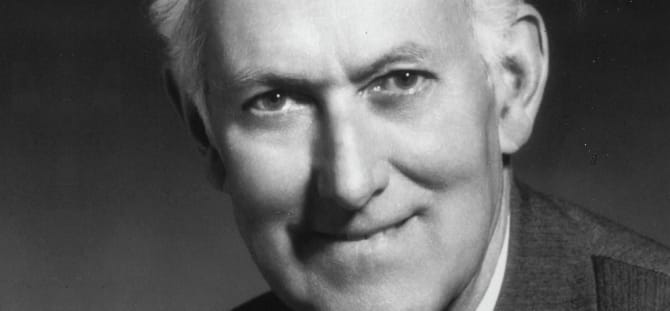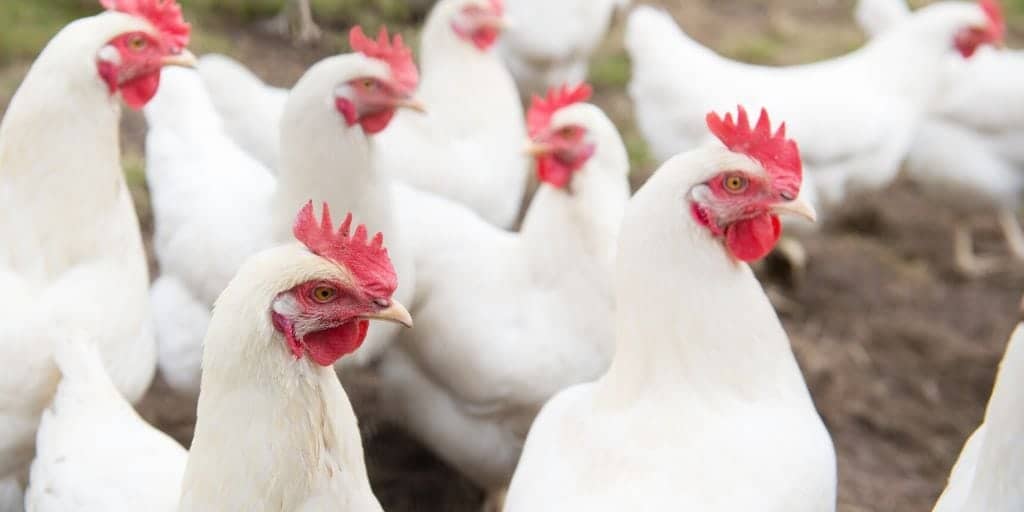Celebrating his birthday 28th June, 1915

Anyone can break some crazy law, clever people can change such a law, however it takes a genius to abolish a crazy law; and leave behind a lasting benefit.
Sir Antony Fisher falls into the category of genius and a modest one at that.
His reputation as a World War II flying ace is well known.
Witnessing his brother, a fellow flying ace, shot down during the Battle of Britain, ejecting from his cockpit with a blazing parachute to fall to his death, left a lasting image on Antony’s mind and contributed to his strength of character.
His success, as an economic reformer, came from taking F.A. Hayek’s advice not to go into politics but instead, “make some money and start a Think Tank to change public opinion”.
By taking Hayek’s advice, Fisher created the Institute of Economic Affairs (IEA), leading onto the creation of the 500-member Atlas Network of Economic Think Tanks, spanning the globe.
All that may be well known too. However, not so well known, is Fisher’s initial risky steps leading to a dramatic change in Britain’s eating habits. Upon receiving Hayek’s advice, Fisher researched some possible business propositions that might get him started.
After travelling abroad Fisher wondered why chicken, a luxury in Britain, was an inexpensive daily item for Americans? Fisher discovered, “that the Americans had produced a strain of chicken with a high conversion rate of feed into meat. Compared to the scrawny, but expensive farmyard fowls of home, the plump White Rock chicken matured quickly and produced meat of a consistent quality.” U.K. legislation outlawed the importation of both birds and eggs into Britain, thus condemning the British to eating expensive scrawny chickens for the rest of their lives.
This situation was unacceptable to Fisher who disguised 24 fertilised White Rock eggs as Easter eggs by wrapping them in silver paper and bringing them into the country in his hand luggage. These eggs, when hatched, would be the key to the transformation of agriculture and eating habits in Britain.
By May 1953, Fisher had 2,500 chickens and by August, 24,000. By 1964, Fisher was producing 500,000 birds a week and became Europe’s biggest chicken farmer, giving him the “substance” to launch the Institute of Economic Affairs.
Subsequently, Fisher brushed with the bureaucratic Egg Board by producing eggs that exceeded the imposed quality standards, and with the assistance of the IEA, managed to have the anachronistic Egg Board abolished completely.
Meanwhile, Australia looked on, continuing its own Onion Board, Egg Board and, the recently abolished, Potato Board, in the belief that there was some merit in such “closed cartels”.
The merits were only in favour of the selected few who were receiving the concentrated benefits, and the costs of maintaining such boards were spread over many millions of ignorant consumers.
Interesting to reflect that our State Potato Board was only abolished recently and our equivalent to Antony Fisher is our very own Tony Galati who took the bureaucrats on, and by continually breaking the law and ridiculing the Board’s performance, managed to have it abolished. I understand that the Potato Board members may still be receiving fees as the Board conveniently had its term extended only weeks before its abolition.
We all have much to thank Sir Antony Fisher for, and one might say that his effort on behalf of economic freedom was “not bad for a chicken farmer”.
Milton Friedman, a friend, and neighbour of Fisher’s, commented on Fisher’s achievements, “Atlas’s coverage of the world on behalf of liberty is truly remarkable.”
So, let us celebrate with a toast to Sir Antony Fisher!
Regards,
Ron
Further reading on Sir Antony Fisher: –
- One of the most inspirational stories that I have ever read – https://www.atlasnetwork.org/assets/1406128790/uploads/misc/Champion_of_Liberty_Condensed.pdf
- My early 1977 recollections of Antony Fisher – “The Educational Method”
Disclosure: Mannkal Economic Education Foundation is a proud member of the Atlas Network.
We invite your responses, feedback and suggestions. Please write in the comments box below. If this article resonates with you, please SHARE with your all your contacts.

13 Comments
Dear Ron,
Thank you! I knew only a part of that story, but not the swashbuckling egg smuggling part. Your messages always give my spirits a great boost. And congratulations on eliminating the potato board, Australia’s answer to the Spudnik.
I hope all’s well with you and yours.
Great words indeed.
All of Antony Fisher’ children are very proud of his legacy, not least me his second son.
And we are also very proud of our sister Linda’s continuing efforts in her father’s likeness.
In case you need any further information on the death of Anthony’s brother Basil on 15th August 1940, during The Battle of Britain, please either type ‘Basil’s Grave into Google or visit:-
https://www.poeticexpressions.co.uk/basils-grave-story-111/
Thank you for continuing the memory of my father.
PPS Each year on August 15th, at a grave side in Eton, Berkshire, UK, The Fisher Family meet to remember Pilot Officer Basil Mark Fisher AND to considered that in that place in 1940 The Institute of Economic Affairs and all that flowed from it was conceived in our father’s mind.
Dear Ron, this is really an inspiring as well as a hilarious story of how the money was hatched to start IEA! I knew about the chicken farming but didn’t know that exactly 24 eggs were taken across the border and how they multiplied! What a story of entrepreneurship–business and intellectual!!
CCS had hosted some of your scholars sometime ago. Now we also have the Indian School of Public Policy for those who are keen about public policy. Hopefully things will change so that we will be able to resume cross-country internships.
Hope all of you are doing well. Stay safe!
Thanks Ron
A fascinating story,
Not enough Tony Galatis around today.
Ron, thank you for that fascinating article about Sir Antony Fisher. Although I knew he had started the IEA, for whom I gave a Hayek Memorial Lecture in 1996, I had no knowledge of his earlier years, and how he had managed to accumulate the resources with which to form the IEA. Best regards.
A great review.
We need other challengers to many bureaucratic functions.
Hi Ron, Thanks for putting the egg and chicken story out there. Now we know which came first! I learned of it years ago.
Thank you Ron. Very interesting.
That’s a brilliant one Ron.
Happy days to you. As they say here, “About another 20-30 lockdowns, and we’ll have this beat.” And that will be as lasting as carbon -neutral promises. I tend to forget stuff and burn saucepans here, my contribution to fixing carbon.
Go great.
Thanks Ron for continuing to remind us of misplaced legislation and bureaucracy. Keep up the good work.
Thanks Ron. I never get tired of that story. And it is very timely given that one reason for his success was to bypass customs and quarantine laws that he disagreed with. Interesting also that he copied what he saw working in the US, the same as Neville Kennard did when he saw self storage in the US that was not yet in Australia.
Ron, great article.
Hi Ron,
I was sent a copy of your recent article on Sir Anthony Fisher about his revolutionary changes to the poultry industry in the UK. It reminded me of something someone (whose name I’ve now forgotten) once told me about my father’s role in reducing costs within the poultry industry by inventing or designing the humble chicken pellet. My father Bob Masters was manager of flour miller and animal food producer W Thomas and Co in Cottesloe in the 1950s and 1960s. I was told that he revolutionised the poultry industry through the production of chicken pellets which contained all the necessary nutritional ingredients in a food product that was dry, easily transported and stored, and simple to provide to poultry in their production sheds. When I expressed my pleasant surprise but some doubt about my father’s role in this achievement, I was asked to think back to when I was a child and try to recall how we viewed chicken as a meat source in the 1950s. Sure enough, I can recall chicken being seen as an expensive luxury food in the 1950s, normally only served at Christmas and other special occasions, but then it all changed and, by the mid 1960s, chicken meat was so cheap it became a common item on the kitchen table, with the first KFC store opening in WA in 1968, for example.
Interestingly, the earliest reference shown in Wikipedia’s entry on poultry feed – https://en.wikipedia.org/wiki/Poultry_feed – is dated 1955, suggesting that chicken pellets were developed around that time which is consistent with the story told above.
Sadly, my father died in 1968 after leaving W Thomas and Co in late 1966 to start his own animal foods business MasterMix Feeds in Armadale and the story teller only told me of my father’s role many years after his death.
Regards,
Bernie Masters